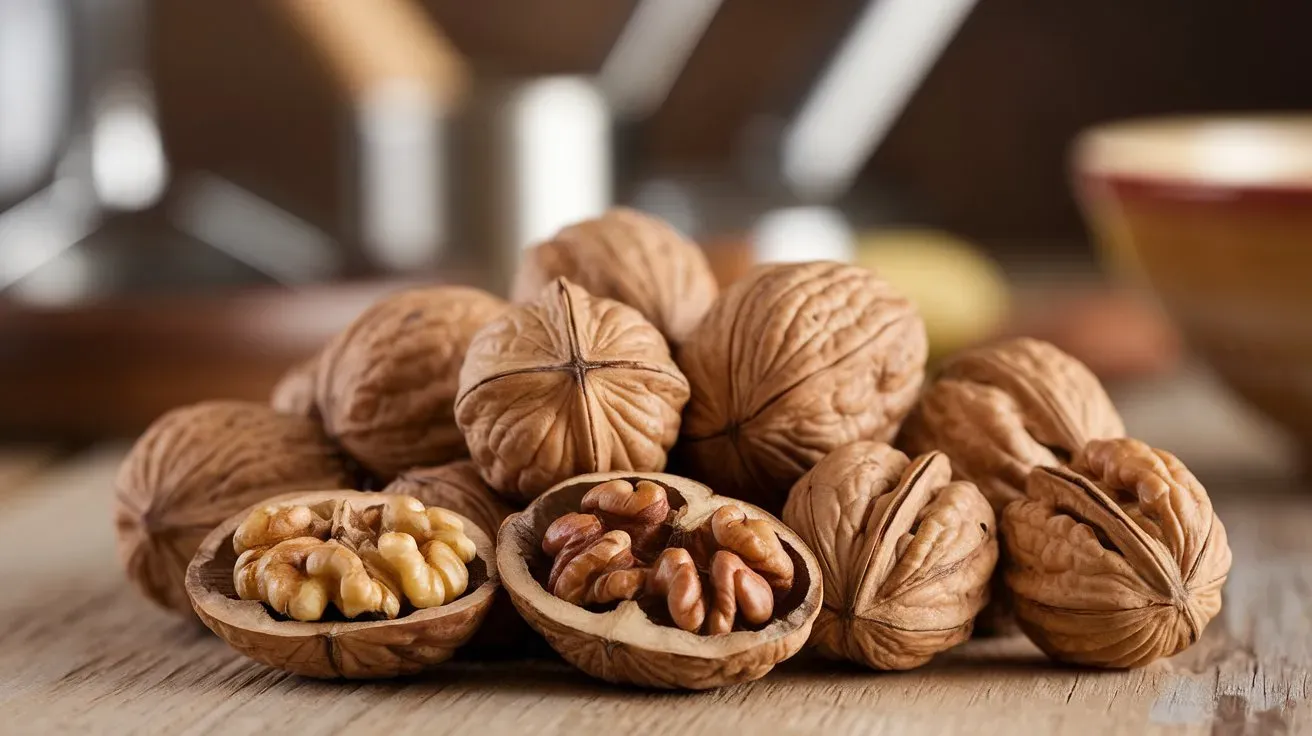When it comes to superfoods, walnuts often top the list of the most nutritious nuts. Not only are they delicious and versatile, but they also offer a wealth of health benefits. From promoting heart health to boosting brain function, walnuts are a nutrient-packed powerhouse that you should include in your diet.
In this article, we’ll explore the incredible health benefits of walnuts, their nutritional value, and how to enjoy them in a variety of ways.
What Are Walnuts?
Walnuts are the edible seeds of trees in the genus Juglans, particularly the Persian walnut (Juglans regia). They have a hard shell and a wrinkled, brain-like kernel inside, making them one of the most distinctive nuts in appearance. While many varieties of walnuts exist, the most commonly consumed are English and black walnuts.
Nutritional Profile of Walnuts
Walnuts are nutrient-dense and offer a remarkable range of vitamins, minerals, and antioxidants. Here’s a breakdown of the nutritional content per 100 grams of raw walnuts:
- Calories: 654 kcal
- Protein: 15.2 grams
- Carbohydrates: 13.7 grams
- Fiber: 6.7 grams
- Fat: 65.2 grams (including polyunsaturated and monounsaturated fats)
- Omega-3 fatty acids: 9.08 grams
- Vitamin E: 0.7 mg
- Magnesium: 158 mg
One of the most notable aspects of walnuts is their high content of omega-3 fatty acids, which are essential for heart and brain health.
Health Benefits of Walnuts
1. Supports Heart Health
Walnuts are incredibly rich in healthy fats, especially omega-3 fatty acids and polyunsaturated fats. These fats have been shown to reduce bad cholesterol (LDL) levels and improve overall heart health. Regular consumption of walnuts can lower the risk of heart disease, reduce blood pressure, and improve arterial function.
2. Boosts Brain Function
Thanks to their high levels of antioxidants and omega-3 fatty acids, walnuts are excellent for brain health. Studies suggest that eating walnuts can improve memory, cognitive function, and mental sharpness. The shape of the walnut itself, resembling the brain, is often cited as a sign of its brain-boosting properties.
3. Rich in Antioxidants
Walnuts are loaded with antioxidants, including polyphenols and vitamin E. These antioxidants help combat oxidative stress in the body, which is linked to aging and various chronic diseases. Eating walnuts regularly can protect your cells from damage and promote overall well-being.
4. Helps in Weight Management
Though walnuts are high in fat, they can actually help with weight management. The fiber and healthy fats in walnuts contribute to a feeling of fullness, reducing the likelihood of overeating. Incorporating walnuts into a balanced diet can aid in maintaining a healthy weight.
5. Supports Gut Health
New research shows that walnuts can support the growth of beneficial gut bacteria. A healthy gut microbiome is linked to improved digestion, better immune function, and reduced risk of diseases. The fiber in walnuts acts as a prebiotic, feeding the good bacteria in your gut.
6. May Reduce Inflammation
The antioxidants and polyphenols found in walnuts have anti-inflammatory properties. Chronic inflammation is a contributing factor to many diseases, including heart disease, cancer, and diabetes. By reducing inflammation, walnuts can help protect against these conditions.
How to Incorporate Walnuts Into Your Diet
Walnuts are incredibly versatile and can be enjoyed in a variety of dishes, both sweet and savory. Here are a few ways to add more walnuts to your meals:
1. Add to Salads
Sprinkle a handful of chopped walnuts onto your favorite salad for a crunchy texture and a boost of healthy fats.
2. Blend Into Smoothies
For an extra dose of protein and omega-3 s, blend walnuts into your smoothies. They add a creamy texture and complement fruits like bananas and berries.
3. Use as a Topping for Oatmeal
Walnuts make an excellent topping for oatmeal, providing a satisfying crunch and an energy boost to start your day.
4. Bake Into Goods
Incorporate walnuts into baked goods like muffins, cookies, or bread for added flavor and nutrition.
5. Snack on Them Raw
One of the simplest ways to enjoy walnuts is to eat them raw. Keep a small handful as a snack to curb hunger between meals.
Storing Walnuts
To keep walnuts fresh for longer, store them in an airtight container in the refrigerator or freezer. The high fat content in walnuts can cause them to go rancid if left at room temperature for extended periods. Keeping them cool helps preserve their freshness and nutritional value.
Potential Side Effects of Walnuts
While walnuts are generally safe for most people, there are a few potential side effects to consider. Walnuts contain high levels of oxalates, which may contribute to the formation of kidney stones in susceptible individuals. Additionally, some people may have an allergy to walnuts, which can cause symptoms ranging from mild itching to severe anaphylaxis.
FAQs About Walnuts
1. Are walnuts good for heart health?
Yes, walnuts are excellent for heart health due to their high content of omega-3 fatty acids and healthy fats, which help lower cholesterol and reduce the risk of heart disease.
2. Can I eat walnuts every day?
Yes, eating walnuts every day can offer numerous health benefits, especially for your heart and brain. However, moderation is key since walnuts are calorie-dense.
3. Are walnuts better than almonds?
Both walnuts and almonds have unique benefits. Walnuts are higher in omega-3 fatty acids, while almonds provide more vitamin E. Including both in your diet is ideal for balanced nutrition.
4. Can walnuts help with weight loss?
While walnuts are high in fat, they can actually aid in weight loss by promoting a feeling of fullness and reducing overall calorie intake.
5. Do walnuts improve brain function?
Yes, the high levels of antioxidants and omega-3 fatty acids in walnuts are linked to improved brain function, memory, and cognitive health.
Final Thoughts
Walnuts are a nutrient-rich superfood that provides a wide range of health benefits. From promoting heart health to boosting brain function, they deserve a spot in your daily diet. Whether you enjoy them in salads, smoothies, or baked goods

